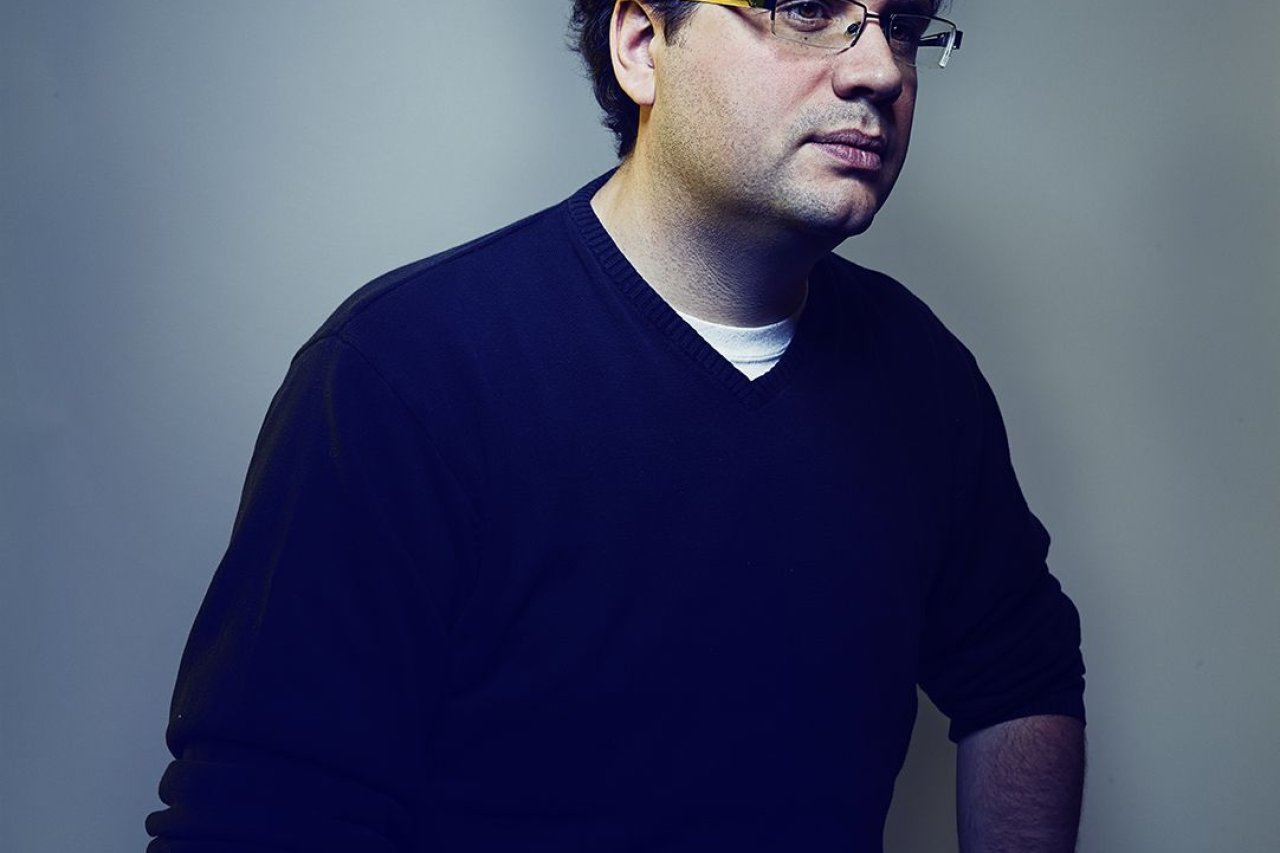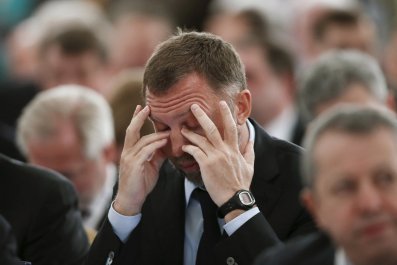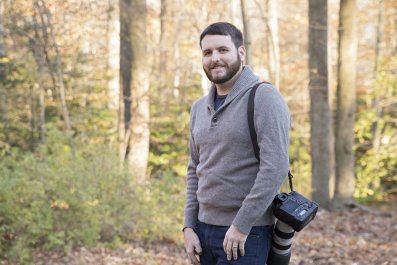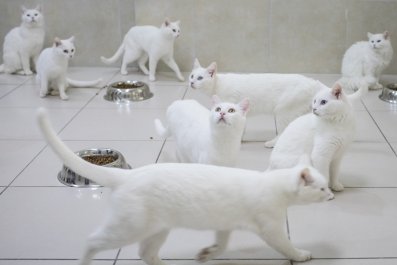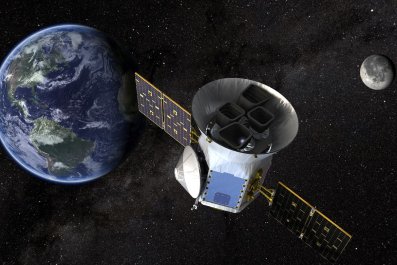Ever since he began blogging during the dying days of the Arab Spring, British citizen journalist Eliot Higgins has made powerful enemies. The reason: Bellingcat, his investigative website, where he has been drawing on satellite images, photographs and social media posts to uncover who's behind deadly attacks around the world.
In 2013, Higgins exposed President Bashar al-Assad's use of chemical weapons against Syrian rebels outside of Damascus. A year later, he implicated Russia in the downing of Malaysia Airlines Flight 17, revealing inconsistencies in Moscow's account of the missile attack, which killed nearly 300 people.
Most recently, Higgins this spring documented the allegations that the Syrian regime again used chemical weapons, this time on the rebel-held Damascus suburb of Douma. Working from his home, in the English city of Leicester, he used video footage to purportedly reveal everything from the method of delivery (a large gas cylinder dropped from a helicopter) to the number of victims (at least 34).
As a result of his work, Higgins now faces an army of pro-Russia trolls on Twitter, Facebook and Russian state media, including RT (formerly Russia Today), which recently branded him an "amateur war-crimes investigator...beloved by pro-NATO Western media."
In April, as the U.S., Britain and France launched airstrikes on military, storage and research targets in Syria, Newsweek spoke to Higgins about chemical weapons and how he became Russia's public enemy No. 1.
When news breaks of an attack such as the one in Syria in April, how do you investigate from the U.K.?
We are piecing together a jigsaw from all the open-source information we can find. Generally with Syria, that is going to be social media accounts that are being used by opposition groups—Twitter, YouTube, Facebook and also WhatsApp channels.
You look at the claims that are being made, you try and cross-reference that against the videos and photographs and other claims. You start building a picture of the narrative that is unfolding.
Give me an example?
In this recent [chemical] attack, there was talk of people dying in a basement. Well, we have looked at all the imagery, and we can't see any basement in any of the video footage. There is a ground-floor apartment, but there is no basement, so it could be that there is confusion between what is being described in the initial reports and what actually happened.
How are you able to determine whether the Syrian regime used chemical weapons?
In Douma, we had a network of aircraft spotters who had spotted two transport helicopters, the type of which had been used in previous barrel bomb and chlorine bomb attacks, heading toward the city. Then very shortly before the attack, two helicopters—likely the same helicopters—were seen above the area. We also have the various information coming from the doctors that are treating the victims, and that is coming through organizations that are running the hospitals.
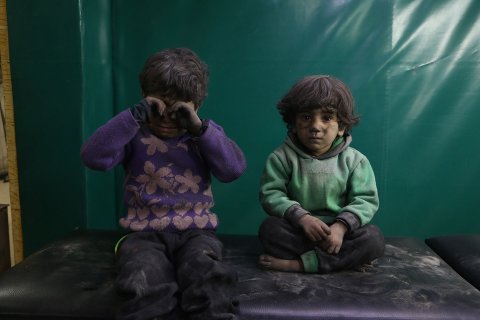
But aren't there significant limitations to this type of journalism?
It is not the cure-all for investigations and stories. For example, I frequently get people sending me emails asking if I can help with MH370 [the Malaysian airline flight that disappeared in March 2014]. But MH370 crashed in the middle of nowhere, which makes open-source investigation virtually useless. That said, open source isn't just about what is on the ground or what is in the air. You have a lot of satellite and drone imagery now, and that is becoming increasingly useful in this kind of work.
You were previously an avid internet commentator. Do you still like to have a row?
I do, and if you look at my Twitter over the last couple of days, you'll see that. But it does get to the point that there are so many people who want to argue that I have to start ignoring them.
Since you began this work six years ago, has Russia gotten better at disinformation?
There really hasn't been much of a change. The way they behaved around the sarin attacks [in Syria in 2013] is the same way they behaved around MH17 [the Malaysian Airlines flight shot down over eastern Ukraine in July 2014] and now Douma. They cite conspiracy theories, they throw out lots of useless information, they ask lots of questions that are either irrelevant or have already been answered or just confuse matters, and they have the Russian media putting out all kinds of different versions of events.
How do you respond to the accusations that you favor an anti-Assad, anti-Kremlin narrative on Syria?
Well, that is usually coming from those who are rabidly pro one side or another. If Assad hasn't used chemical weapons, if Russia had not shot down MH17 and sent troops into Ukraine, I wouldn't have anything to write about. It is very rare [that] people challenge the actual work I am doing in any substantive manner.
Why do you think Assad continues to use chemical weapons?
People only hear about this when there is a really big incident like Douma, [but] these attacks are happening all the time. Assad is using chemical weapons and getting away with it, and he has been doing it for five years. So far, the risks of doing it do not outweigh the benefits.
How would you like to see countries around the world respond?
I think the question is this: Do they actually want to stop chemical attacks from happening? Because the only solution to that is to demonstrate to Assad that to use chemical weapons will carry a very heavy price. Everyone is still scared. Iraq's shadow looms over everything. But this is not 2003. This is a situation where there have been multiple documented uses of chemical weapons confirmed by the U.N. This is a completely different situation.
Was April's response by the U.S. and its European allies enough of a deterrent?
I suspect...there's a high chance that we'll see more reports of chemical attacks in the coming months, and eventually another large-scale incident that gets international attention.



